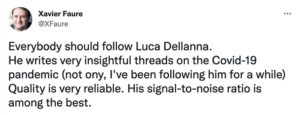There are two types of disciplined people: those who take consistent action through sheer willpower and those who do it without the use of willpower.
In manufacturing, Quality means few manufacturing defects.
Why stop there? We can be more ambitious.
Let’s aim for Managerial Quality: few managerial defects.
What’s a managerial defect
A managerial defect is any event in which actions from a manager (or lack thereof) cause a problem of any kind. This includes tangible problems, such as incidents or product defects, but also intangible ones, such as employees losing motivation or becoming disengaged.
Managerial defects should be treated just as we treat product defects or safety incidents: investigating the root cause and then taking decisive action to prevent them from occurring for the same cause ever again.
Many concepts from Product Quality could be brought into Managerial Quality. For example, Continuous Improvement should become a key value of managers, related to their own management skills and behaviors. Concretely, it means that managers constantly seek feedback and look for their own managerial defects, and when one surfaces, they tackle it with a long-term mentality of addressing a root problem rather than patching a fragile band-aid on top of a symptom. Moreover, Continuous Managerial Improvement means that workers are empowered and encouraged by their own manager to raise problems and are acknowledged when doing so.
Another concept of Product Quality that could be brought into Managerial Quality is the relentless quest for Zero Defects. Note that the goal to Zero is adopted not because it’s achievable (it might not be) but because acting as if defects were completely eliminable is a prerequisite to eliminating as many as reasonably possible. For example, a team that believes that managerial defects just happen won’t be motivated to reduce them, and when it does try, it might not look for proactive or definitive solutions – only reactive or temporary ones.
As an example, what would we do differently if we did commit to Zero Managerial Defects?
- We would be superclear – not just clear enough to be understood, but clear enough so that we cannot be misunderstood.
- We would FMEA managerial communication, delegation, feedback, and other managerial activities.
- We would investigate managerial defects, find out root causes, and address them so that no more defects would happen for the same reason ever again.
- We would train managers better, instead of the current situation where too many managers entered the company in a technical role and one day got promoted without much managerial training outside of how to handle bureaucratic matters.
- We would coach managers and, in general, treat managerial competence as something to be constantly improved.
- We would create a Zero Managerial Defects culture that empowers workers to surface managerial defects rather than hide them under the carpet, where they would later resurface as disengagement, inefficiency, and ineffectiveness.
Hence my call to action: let’s treat Managerial Quality as we treat Product Quality, and let’s strive towards a Zero Managerial Defects goal. It’s well worth it.
Luca Dellanna is a management advisor who has helped tens of companies improve their revenues and lower their costs through the lever of better people management.



